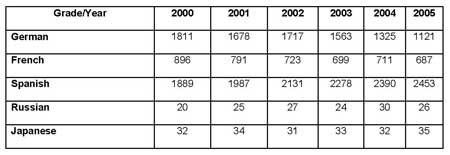IELTS essay, topic: Nowadays people waste a lot of food, why is this happening and how to reduce waste?
Nowadays people waste a lot of food that was bought from shops and restaurants. Why do you think people waste food? What can be done to reduce the amount of food they throw away?
At the time when famines heavily strike impoverished third world countries, many people living in wealthy countries waste tremendous amounts of food daily. In my opinion, understanding the probable reasons of this phenomenon is important and may lead us to some applicable solutions that will result in reducing food waste.
The low cost of food seems to be one of the obvious reasons, exacerbating the problem. Due to the revolutionary technological achievements, people have increased both the quality and the quantity of their crops. In turn, according to the laws of supply and demand, the prices of the crops have immensely dropped. A recent study of the FAO stated that the global crops prices have dropped 50 per cent over the last decade. This enabled people to buy excessive amounts of food without a real need.
Furthermore, the absence of strict regulations to discourage or punish this attitude can also be considered a major cause. Not everyone is aware that wasting food may create problems. Consequently, they are likely to resist any calls for controlling the consumption of dietary supplies unless they are forced by the power of law. Several countries in the world saw a drop in their national food waste after implementing a ban on the excessive purchasing of food.
Fortunately, there are some possible approaches that can be adopted by both people and governments. Firstly, raising the awareness of this issue is immensely important. Using social media platforms can draw public attention to the potential dangers of food waste and how communities can confront it. Secondly, enforcing laws that prohibit the wasting of food by people and companies will deter such harmful practice.
In conclusion, the decreased price of food as well as lack of regulations allowed the unfortunate trend of throwing away food to continue. I believe that creating awareness and legislation are parts of a straightforward solution to this issue.
The writer explored the reasons for throwing away food and suggested some solutions, effortlessly conveying his/her ideas in this well-written IELTS essay. The information is presented in an orderly, logical and coherent way. A wide range of vocabulary is used in this written response. The sentence structures are varied and the vocabulary is impressive. Overall, this essay could achieve IELTS Band 8.
Click here to see more IELTS essays of Band 8



